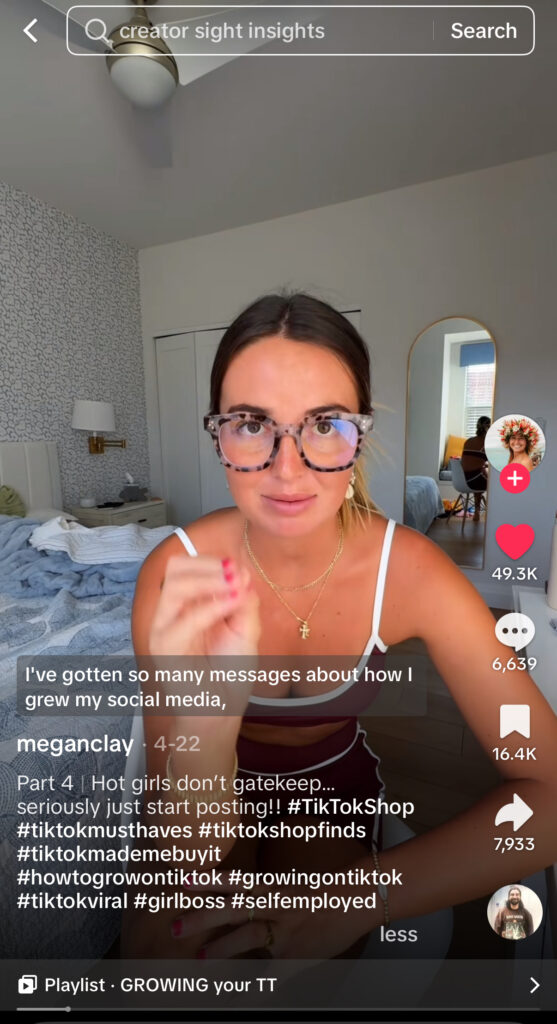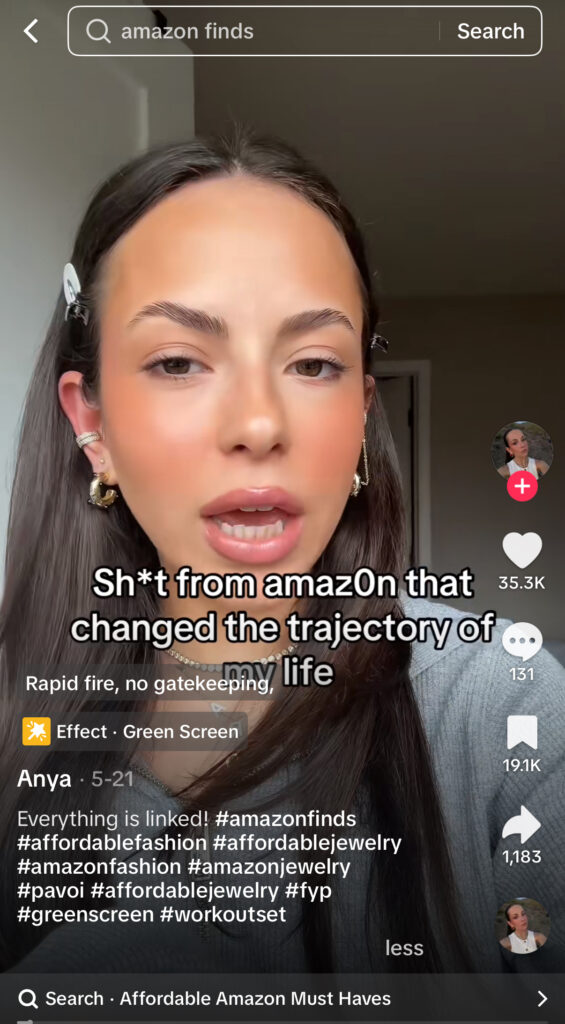Written by Colby Paolo
If you’ve ever scrolled through TikTok and ended up impulse buying a lip gloss, a pair of Amazon leggings, or a facial ice roller, you’ve probably fallen for the power of influencer marketing, sometimes without even realizing it. The phrase “TikTok made me buy it” has become a cultural phenomenon, with creators across platforms casually recommending products that often turn out to be tied to affiliate links or paid brand partnerships.
As someone who both consumes and creates content, I’ve started thinking more critically about where the line exists between honest opinions and subtle advertising. Are creators truly obsessed with these products, or are they just chasing commission checks? More importantly, what do they owe their audience in terms of transparency?
What’s the Ethical Issue Here?
At its core, this is a question of media ethics: When influencers blur the line between personal recommendation and advertisement, they risk misleading their followers, especially if they aren’t disclosing that they’re being paid to post.
The Federal Trade Commission (FTC) actually has guidelines in place requiring creators to disclose sponsored content or affiliate relationships. But on platforms like TikTok, the pace is fast and the captions are short, and those disclosures are brief or even left out completely.

This raises a huge ethical red flag. According to the principle of telling the truth in media ethics, audiences have the right to know when a piece of content is designed to persuade or sell. And when that’s not obvious, creators risk breaking the trust they’ve built with their followers.
Photo Credits: @meganclay on TikTok
Why Does This Matter?
The influencer and follower relationship is built on loyalty and trust. Many people follow creators because they believe in their taste, their values, or their aesthetic. But when money is involved behind the scenes, those recommendations can become less about helping viewers and more about making a profit.
It’s not inherently unethical to earn money from brand deals or affiliate links. In fact, for many creators, that’s how they make a living. The issue is the lack of transparency. Audiences deserve to know when a product is being promoted because of a financial incentive.
This becomes even more important when you consider younger audiences. Many TikTok users are teenagers or young adults who may not recognize the difference between an organic recommendation and a strategic marketing tactic. Creators have a responsibility not to take advantage of that blurred understanding.
Photo Credits: Anya on TikTok

Applying Ethical Principles
Using Sissela Bok’s Test of Publicity, we can ask: Would a creator feel comfortable if their audience knew the full financial arrangement behind a “TikTok made me buy it” post? Would the audience still feel the same way about the product or even the creator if they knew the post was sponsored?
If the answer is no, that’s a sign that the content lacks ethical transparency.
What Should Creators Do?
Being ethical doesn’t mean creators can’t monetize their content. But it does mean:
- Clearly labeling sponsored content and affiliate links (in the first few seconds or lines, not hidden in the hashtags)
- Only promoting products they truly believe in or have tested
- Being upfront with followers about when a post is part of a brand partnership
At the same time, platforms like TikTok should also take more responsibility by making disclosure options more user friendly and harder to bypass. Right now, it’s too easy to let things slide under the radar and when that happens, it’s the audience that ends up misled.
Link to TikTok Example
Video Credits to @elmzaplays on TikTok
Final Thoughts
As influencer marketing becomes more normalized, we all have a role to play in keeping the space ethical whether we’re creators or consumers. When someone says “TikTok made me buy it,” the goal should be enthusiasm and not deception.
Honesty builds trust. And in a digital world full of sponsored posts and hidden links, that trust is more valuable than any commission.
Citations
Federal Trade Commission (FTC). “Disclosures 101 for Social Media Influencers.” https://www.ftc.gov/business-guidance/resources/disclosures-101-social-media-influencers
Wilkins, Lee, et al. Media Ethics: Issues and Cases. Rowman & Littlefield, an Imprint of The Rowman & Littlefield Publishing Group, Inc, 2022.
Bok, Sissela. Lying: Moral Choice in Public and Private Life.
